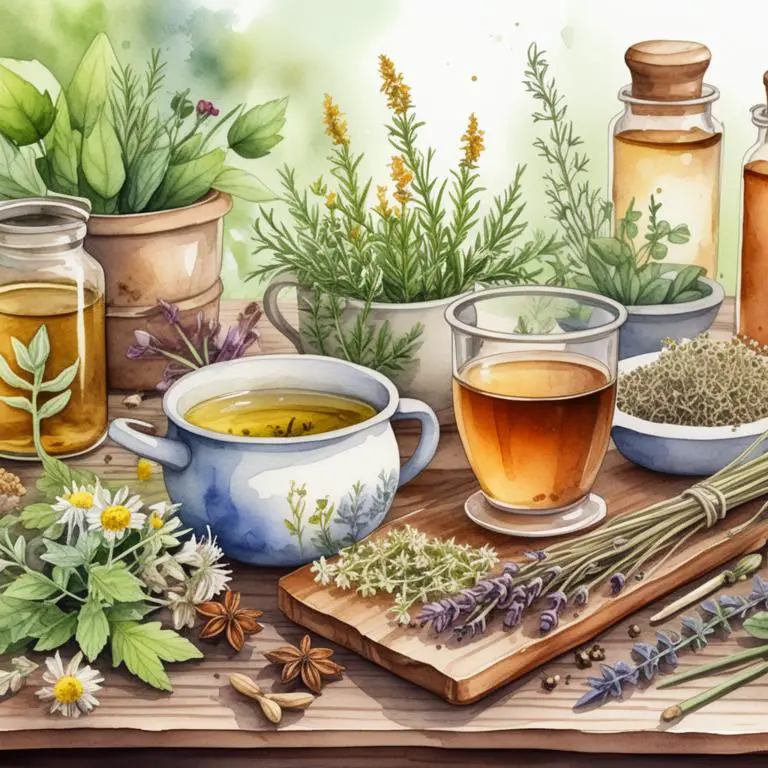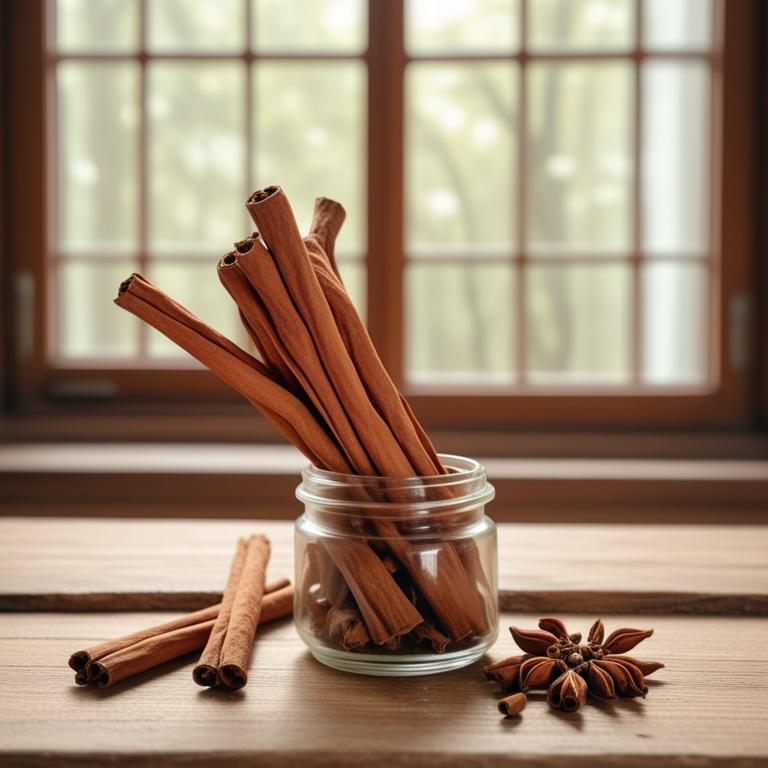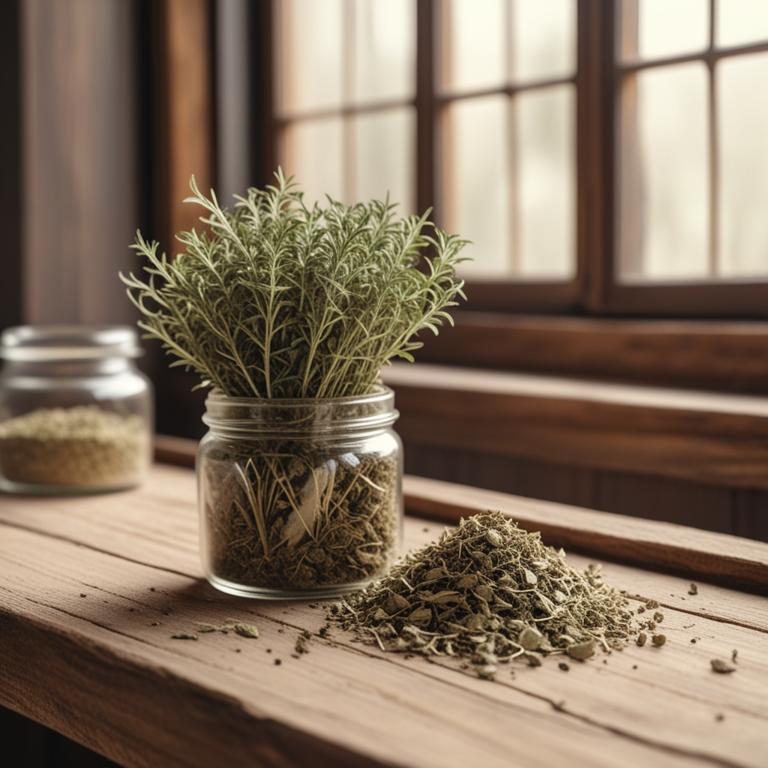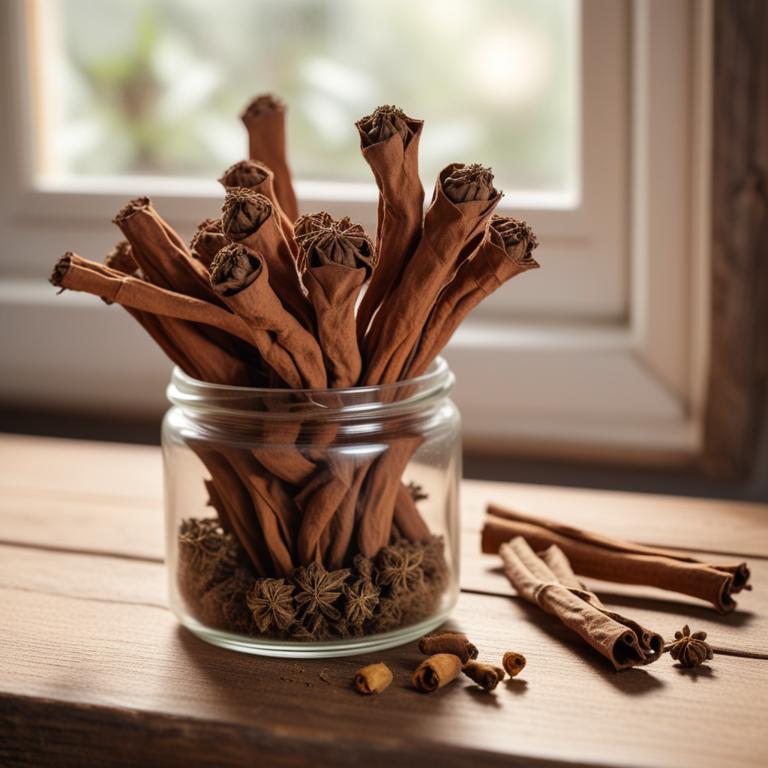Updated: Dec 1, 2024
Gallstones: Herbal Remedies and Medicinal Herbs for Prevention and Treatment
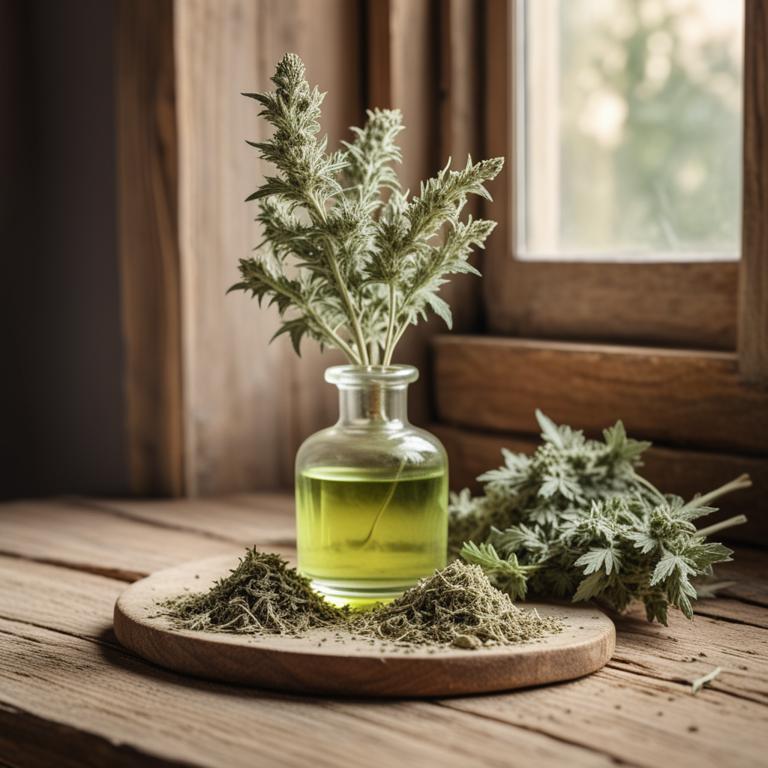
Gallstones are hard deposits that form in the gallbladder, a small organ that stores bile to help with digestion.
When gallstones block the bile ducts, it can cause severe pain, nausea, and vomiting, making everyday activities a challenge. This condition can also lead to digestive issues like diarrhea, constipation, and abdominal swelling. Gallstones are often caused by a diet high in fat, obesity, and genetics. Herbal remedies have been used for centuries to help prevent and treat gallstones.
Some of the healing herbs for gallstones include milk thistle, which protects the liver and helps dissolve gallstones, and turmeric, which reduces inflammation and eases pain. Dandelion root and artichoke also help stimulate digestion and promote the removal of gallstones. To use these herbs for gallstones, you can try making teas by steeping dried roots and leaves in hot water. Milk thistle tea, for example, can be made by steeping dried milk thistle leaves in hot water for 5-7 minutes. Turmeric tea can be made by mixing turmeric powder with warm water and adding a squeeze of lemon juice.
You can also try taking supplements or capsules of these herbs after consulting with a healthcare professional.
Table of Contents
What triggers the formation of gallstones?
The main causes of gallstones are a mix of lifestyle and genetic factors.
High cholesterol levels in the bile can cause gallstones, as cholesterol can crystallize and form stones. Obesity is also a risk factor, as excess fat can cause the bile to become more concentrated and increase the risk of stone formation.
Family history plays a role as well, as people with a family history of gallstones are more likely to develop them. Age is another factor, as the risk of gallstones increases with age, especially after the age of 40.
Pregnancy can also increase the risk of gallstones, due to the increased levels of estrogen which can slow down the movement of the bile in the gallbladder, allowing stones to form.
What are the advantages of using herbal remedies for gallstones?
Using herbs for gallstones can be beneficial in several ways.
They can help reduce inflammation and pain in the gallbladder, which is often a symptom of gallstones. Some herbs have natural diuretic properties, which can help the body pass gallstones more easily.
This can also help prevent future gallstone formation by reducing the concentration of bile salts in the gallbladder. Additionally, certain herbs have antioxidant properties that can help protect the gallbladder from damage and promote healing. Some herbs may also help improve digestion and reduce symptoms of gallstones, such as bloating and nausea.
They can also support the liver and gallbladder function, which can help prevent gallstones from forming in the first place.
What are the most beneficial medicinal herbs for gallstone relief?
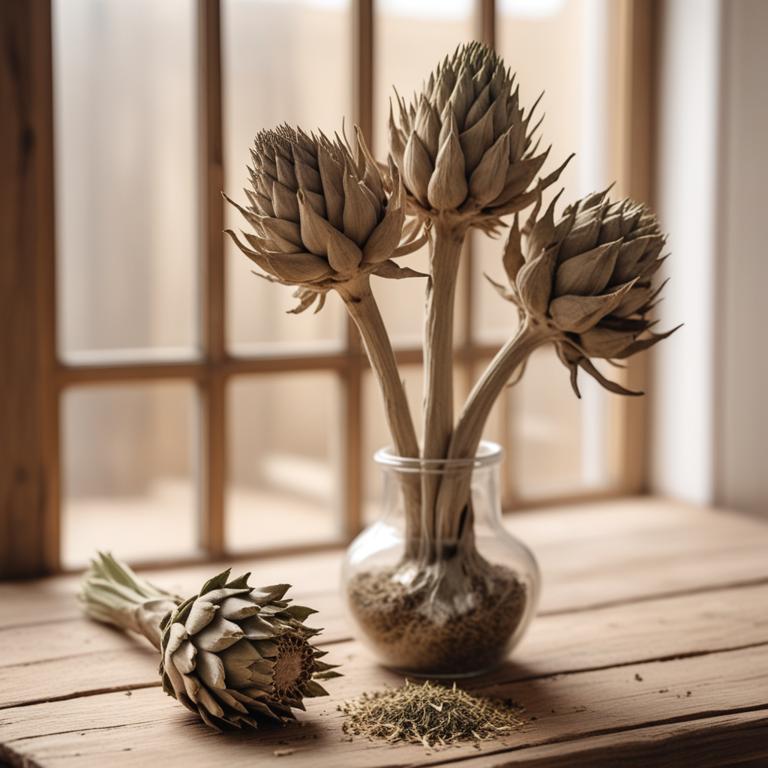
When it comes to gallstones, certain herbs can help with symptoms and even prevent new stones from forming.
One such herb is Cynara scolymus, also known as artichoke. It contains compounds that stimulate the liver to produce more bile, which helps dissolve existing gallstones and prevents new ones from forming. Another herb that can help is Glycyrrhiza glabra, or licorice root. Its active compound, glycyrrhizin, has anti-inflammatory properties that can reduce swelling and pain in the gallbladder. It also has a soothing effect on the digestive system, which can help alleviate symptoms like nausea and vomiting. Silybum marianum, or milk thistle, is another herb that's beneficial for gallstones.
It contains a compound called silymarin, which protects the liver from damage and promotes the production of bile. This can help dissolve gallstones and improve the overall health of the gallbladder. Curcuma longa, or turmeric, contains a compound called curcumin, which has potent anti-inflammatory and antioxidant properties. It can help reduce inflammation and pain in the gallbladder, as well as improve digestion and reduce symptoms like bloating and gas. Lastly, Zingiber officinale, or ginger, is a natural anti-inflammatory that can help alleviate pain and discomfort in the gallbladder. It also has a soothing effect on the digestive system, which can help reduce nausea and vomiting.
These herbs can be consumed in various forms, such as teas, capsules, or tinctures, and can be used in combination with a healthy diet and lifestyle to help manage gallstones.
What are the herbal remedies commonly used to treat gallstones?
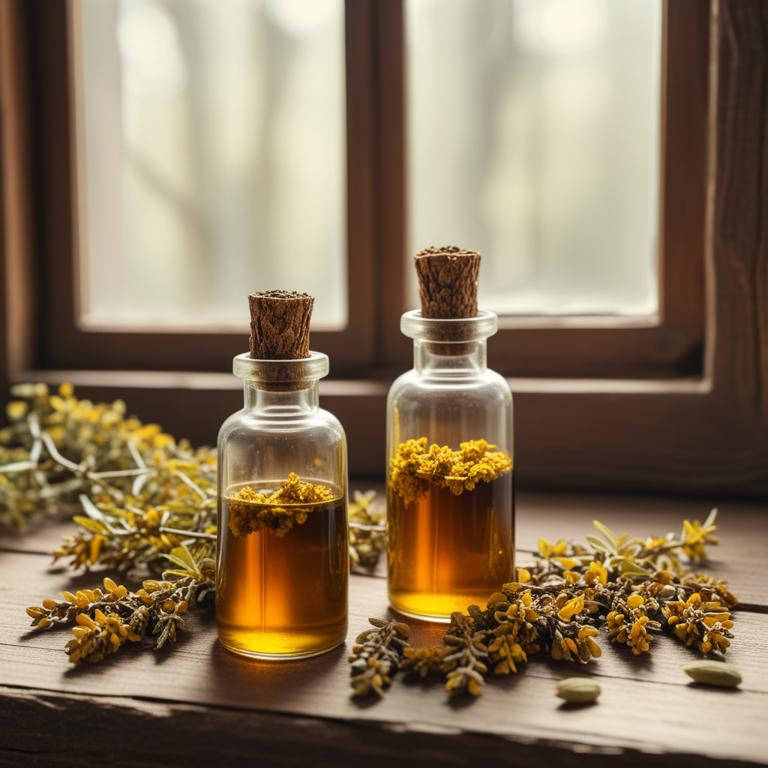
When it comes to gallstones, herbal preparations can be a helpful addition to your treatment plan.
A decoction is a strong liquid made from roots and bark, which can help dissolve gallstones naturally. Herbs like dandelion root and turmeric root are often used in decoctions to stimulate digestion and reduce inflammation in the gallbladder. An infusion, on the other hand, is a more gentle way to consume herbs, made by steeping leaves and flowers in hot water. Herbs like milk thistle and artichoke leaves are used in infusions to promote liver and gallbladder health, and can help reduce symptoms like pain and nausea. If you prefer to take your herbs in a capsule, you can buy them pre-made or make your own at home.
Capsules are a convenient way to get a concentrated dose of herbs like goldenseal and Oregon grape root, which have anti-inflammatory properties that can help reduce swelling in the gallbladder. A tincture is a liquid extract of herbs that can be taken sublingually (under the tongue) or added to water. Herbs like peppermint and ginger are used in tinctures to calm digestive issues and reduce pain. The rapid absorption of tinctures can be especially helpful if you're experiencing sudden attacks of gallstone pain. Finally, a salve is a topical application of herbs that can be applied directly to the skin over the gallbladder. Herbs like castor oil and calendula are used in salves to reduce inflammation and promote healing in the affected area.
By applying a salve directly to the skin, you can target the affected area and get relief from pain and discomfort.
Additional Resources:
What herbs might interact negatively with gallstones?
If you have gallstones, it's best to be careful with certain herbs that can make things worse.
Angelica archangelica, for example, can stimulate the gallbladder to release more bile, which can be a problem if you already have stones blocking the flow. Ginkgo biloba can also affect the gallbladder, although it's not entirely clear how.
But what's known is that it can increase the risk of gallstones forming or worsening existing ones. Paeonia lactiflora can be a bit of a concern too, as it can stimulate the digestive system, which might not be what you need if you have gallstones. Petasites hybridus, also known as butterbur, contains compounds that can relax the muscles in the digestive system, but this can also cause the gallbladder to contract and push out bile, potentially making gallstones worse.
Finally, Daphne gnidium is not commonly used for medicinal purposes, but it's worth mentioning because it's been associated with liver and gallbladder problems in some cases.
FAQ
Are there any specific herbs that can prevent gallstones?
Some herbs, like turmeric and dandelion root, may help prevent gallstones.
Turmeric contains a compound that reduces inflammation in the gallbladder, while dandelion root stimulates bile production, which can help break down cholesterol and prevent stone formation.
These herbs are sometimes used to support gallbladder health.
Is it safe to use herbal remedies for gallstones during pregnancy?
Using herbal remedies for gallstones during pregnancy can be a concern.
Some herbs may affect the baby's development or cause complications. For example, goldenseal and dandelion root can stimulate the uterus, while milk thistle can affect blood clotting.
It's essential to be cautious when considering these remedies, as they may interact with pregnancy hormones.
Are there any herbs that can reduce the frequency of gallstones?
Some herbs may help reduce the frequency of gallstones.
Milk thistle, for example, is thought to protect the liver and gallbladder, which can help prevent gallstones. Turmeric contains curcumin, a compound that may reduce inflammation and improve liver function.
These herbs may be beneficial when consumed as part of a healthy diet and lifestyle.
Can i combine different herbal remedies for gallstones?
Combining herbal remedies for gallstones can be a bit tricky.
Some herbs, like milk thistle, support liver health, while others, like turmeric, reduce inflammation. If you're considering multiple remedies, start with small amounts and gradually increase as needed.
Monitor your body's response and adjust accordingly to avoid any potential interactions.
Related Articles
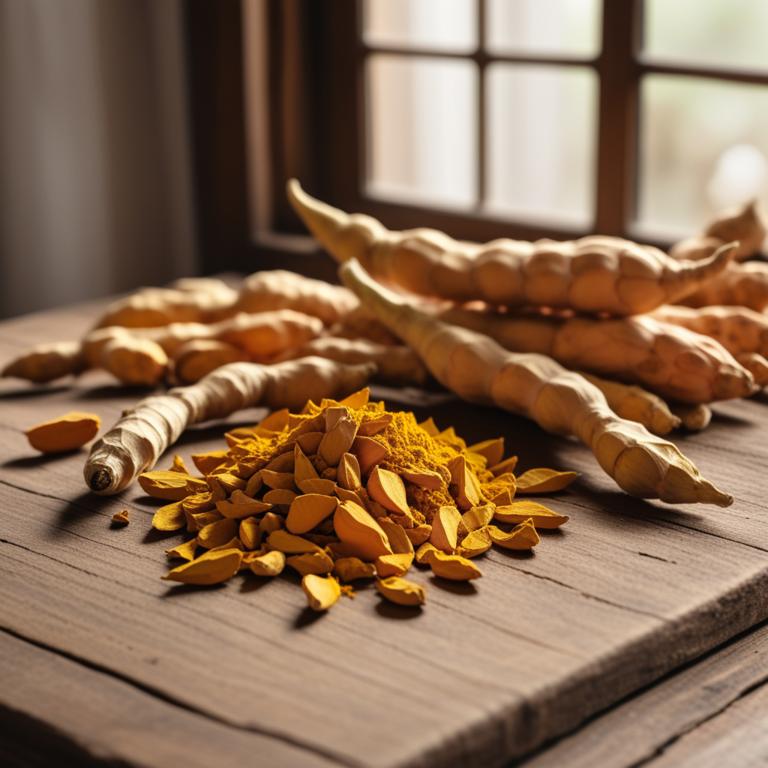
Cholecystitis: Causes, Symptoms, Medicinal Herbs, and Therapeutic Herbal Preparations
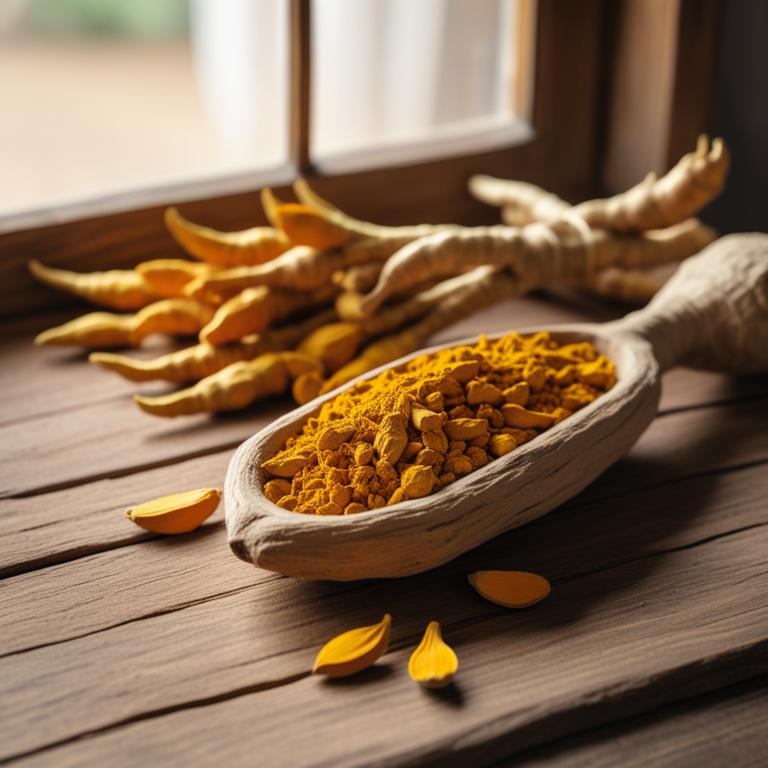
Causes and Herbal Treatments for Upper Abdominal Pain
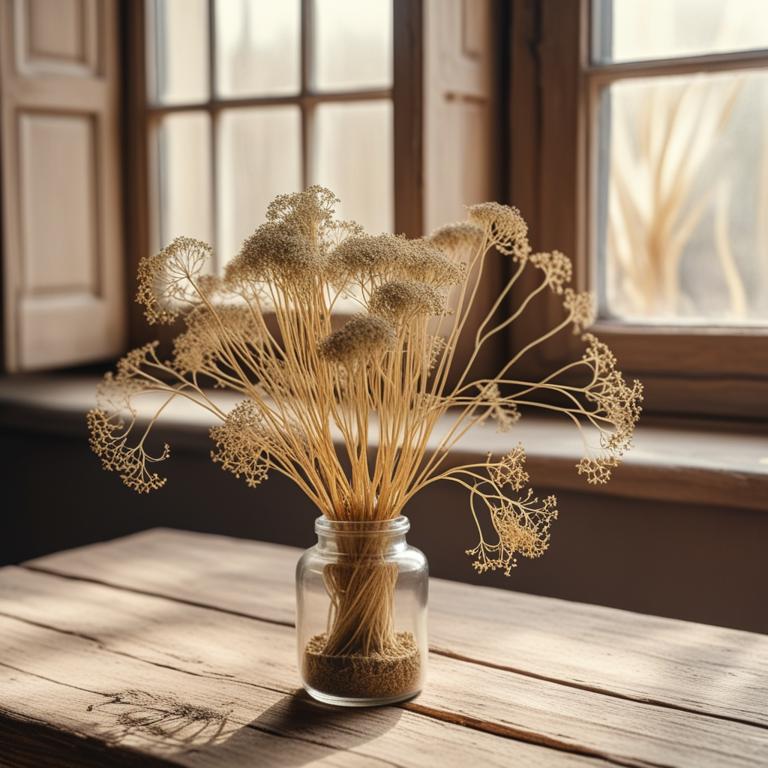
Vomiting: Understanding the Causes and Natural Remedies with Medicinal Herbs and Herbal Preparations
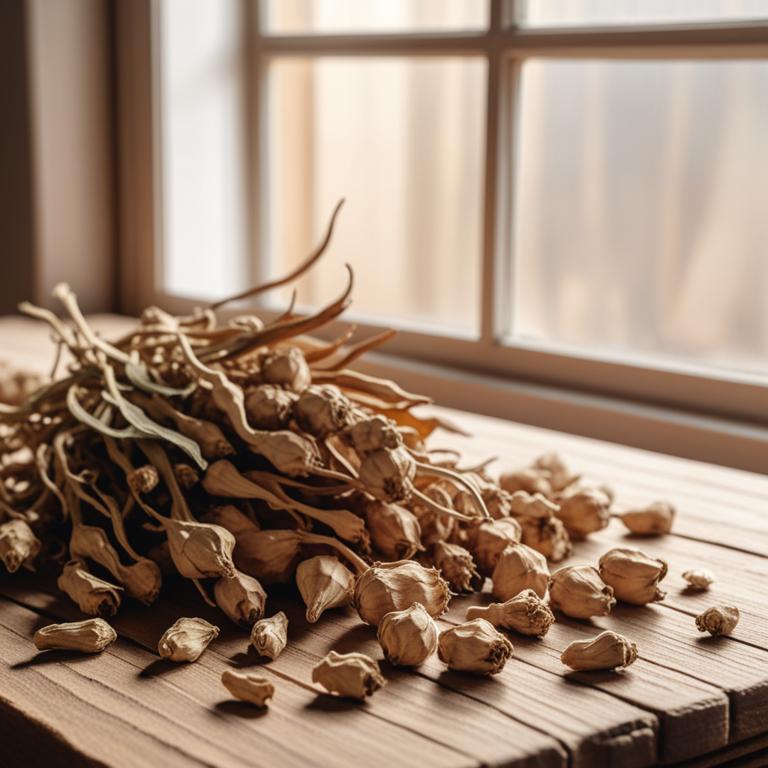
Peptic Ulcers: Causes, Medicinal Herbs, and Herbal Preparations for Pain Relief
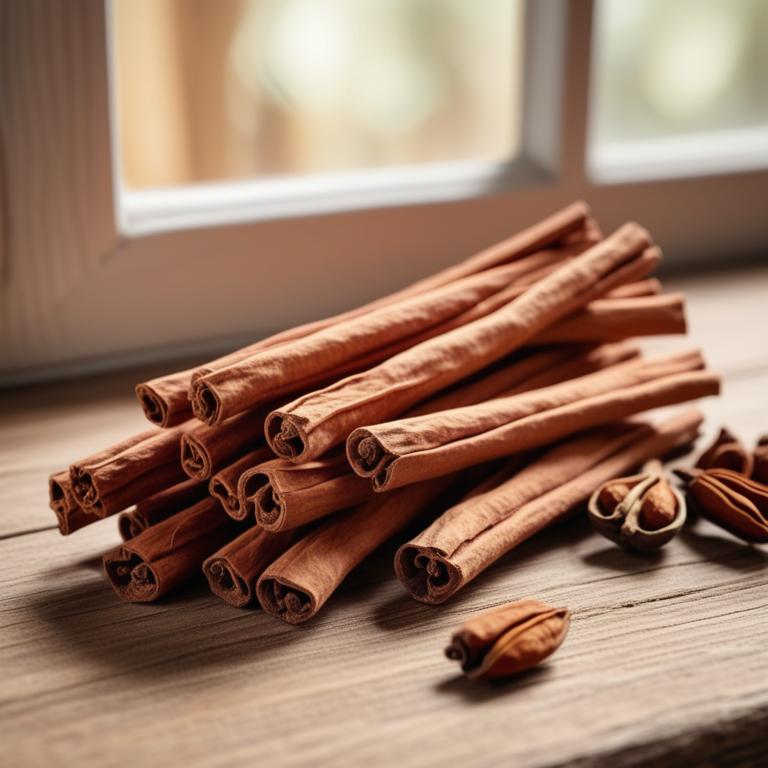
Morning Sickness: A Guide to Causes and Herbal Preparations
